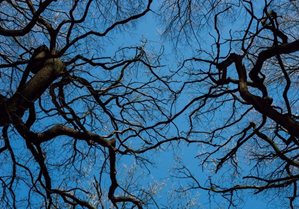When on a journey, most farmers observe what is happening in fields and farms around the country. They often take a mental note if there is something they would like to introduce, or avoid, in their own farm. It is also interesting to observe the countryside when travelling to another country, even if many of the farming practices are not transferable to Ireland.
Recently, we had the opportunity to visit the coastal town of Agadir in Morocco and took an excursion to the fascinating walled city of Taroudant, some 50 miles away. Our trip took us through a forest of argan trees which gave colour to the otherwise parched land. These trees provide a vital income for farmers as they produce an oil that can be used in cooking and in the production of cosmetics.
Extreme fodder
As we travelled along we were suddenly greeted by a very unusual spectacle - goats had climbed up into the trees and were perched on the branches, happily eating! Not surprisingly, the bus stopped for a few minutes for us to watch this fascinating sight. Thankfully the animals in our country do not need to go to such extremes to find fodder.
 As we journeyed on, I began to think of biblical stories relating to trees that led to very different outcomes. In Genesis chapter 2 we read of the idyllic Garden of Eden where God provided an abundance of food for Adam and Eve. However, He instructed them not to eat from one tree - the 'tree of knowledge of good and evil'. Sadly, they yielded to Satan's temptation to eat and their disobedience created a barrier between each other and, most importantly, between them and God. Sin had entered the world bringing toil, conflict, sickness and death.
As we journeyed on, I began to think of biblical stories relating to trees that led to very different outcomes. In Genesis chapter 2 we read of the idyllic Garden of Eden where God provided an abundance of food for Adam and Eve. However, He instructed them not to eat from one tree - the 'tree of knowledge of good and evil'. Sadly, they yielded to Satan's temptation to eat and their disobedience created a barrier between each other and, most importantly, between them and God. Sin had entered the world bringing toil, conflict, sickness and death.
In contrast, in Luke Chapter 19, we read the story of Zacchaeus, “He wanted to see who Jesus was... So he ran ahead and climbed a sycamore-fig tree to see him…"(vs 3,4) This time, a tree enabled someone to see Jesus. Zacchaeus was a wealthy man because he was a tax collector and had cheated many people, yet the longing within his heart could not be filled with possessions. He probably never imagined that Jesus would stop to speak to him and even declare, “I must stay at your house today" (v5).
This leads us to the most important story of all time concerning a tree. It took place at Calvary, when Jesus willingly went to a cursed tree to pay the penalty for our sin as written in 1 Peter 2:24 “…He himself bore our sins in his body on the tree…”
Satisfying the longing within our hearts
Unlike the Moroccan goats and Zacchaeus we do not have to climb a tree to satisfy the longing within our hearts. We need to do the opposite and kneel before God in repentance for our sin and accept Jesus as our Lord and Saviour.
As we continue to 'toil' the land and cope with life's difficulties we do so in the knowledge that God loves us and is with us each day. He continues to offer us His Grace despite the fact that we do not deserve it. And as he does, we can look forward to God's promise, which is given in Revelation 21:4,5 '"...There will be no more death or mourning or crying or pain... 'I am making everything new!'"
_-20170327.jpg.aspx?width=130&height=195) Charlotte Stevenson farms with her husband, Jim, and son, James near Kilkeel in County Down and is a member of Mourne Presbyterian Church. Having worked in the Presbyterian Church in Ireland’s Assembly Buildings in Belfast for a number of years, Charlotte retired in December 2017.
Charlotte Stevenson farms with her husband, Jim, and son, James near Kilkeel in County Down and is a member of Mourne Presbyterian Church. Having worked in the Presbyterian Church in Ireland’s Assembly Buildings in Belfast for a number of years, Charlotte retired in December 2017.
Her blog appeared in a fortnightly column entitled ‘Good News For the Countryside’, in today’s Farming Life, where people from a farming background, or who have a heart for the countryside, offer a personal reflection on faith and rural life.
You can look at other blogs in this series here.
If you would like to talk to someone about any of the issues raised in this article, please email Rev Kenny Hanna at khanna@presbyterianireland.org or call him on 028 9753 1234.